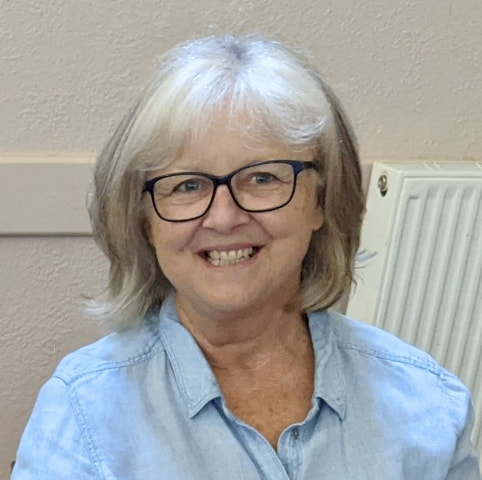“Change” – experienced every second of our lives and perversely avoided at all costs by many - was looked at from three perspectives - (1) individual and/or small group, (2) community, and (3) leadership. Three of many relevant theories and commentaries were the focus.
- Prochaska and DiClemente describe 6 stages of change - ranging from “I have no need to change”, to actively introducing change, and to returning to old behavior patterns. The theory is easily applicable to every-day changes, for example, moving to a new house or introducing exercise, as well as to crisis driven change such as job losses, social distancing and wearing a mask.
- Jeroen Kraaijenbrink offered a “glass half full” angle on why the Covid crisis is a catalyst for community/individual change. Pragmatically, he says, we must change anyway; intellectually a crisis shows that change is possible; and socially a crisis creates energy.
- The hefty article Crisis Management: Leading in Constant Change (Authors/s unknown) uses a systems approach to analyzing leadership in a crisis.
U3A could be described as a system. U3A has roles including members, committees, conveners, web, and newsletter coordinators etc. Each role has a distinct task. A change in one of these roles will be experienced to some degree throughout U3A - the system. Likewise, families are systems.
This article offers insights into what makes a good leader in a crisis, behavioural and operational responses, and the community ability to thrive over the long term.
(Find a potted summary at Demystifying Psychology Powerpoint July 19 slides 3-10)
Back on “Forensic” track we touched on the accuracy of eyewitness evidence. Think you would be a fairly accurate eyewitness? Watch the “Monkey Thief” video and join in the quiz (slide 12). Quiz questions and answers will be available on U3A website after 5 August.
Discussion on “How to Spot a Liar” was deferred. For the curious, slide 14 will take you on an insightful and curious trip with a former CIA officer as she outlines “How to Spot a Lie”. Seems our untrained eye/ear/gut does rather well at spotting a lie.
Discussion Part 2 delved into theories of crime and community/political responses to each (see slides 25).
- Classical minds view crime is an act of immoral, free will that weakens society. The best response is to deter through punishment supported by more prisons and stricter laws.
- Biological theory supposes that criminality is an inheritable gene. Find the gene(s), rid the human body of those and, if not possible, then medicate to control behaviour.
- Sociological perspectives suggest it is who you live with and where you live, usually dysfunctional, that makes crime socially and financially worthwhile. Responses include diversion activities, introducing pro-social alternatives and alleviating poverty.
- Interactionist theory says hanging out with criminals will likely make you one, … and offer acceptance, social standing, and power. Responses include a belief in individual capacity for positive change and the power of pro-social interactions.
Not surprisingly, time ran out, so we did not view the straightforward and powerful TEDx talk by the highly regarded actor, mentor, and indigenous leader Uncle Jack Charles. Did you know? … as of September 2019, Aboriginal and Torres Strait Islander prisoners represented 28% of the total adult prisoner population, while accounting for 3.3% of the general population.
The “Monkey Thief” Eyewitness quiz and Uncle Jack’s TEDx are priorities for 5 August
FURTHER READING
1. CHANGE AND COVID19
- Science and humanities experts in Monash University's Faculty of Arts offer their views on what is unfolding, the implications, and how it could reshape relationships, governments, and broader society. https://lens.monash.edu/@politics-society/2020/04/15/1380013/how-covid-19-is-changing-the-world
- Crisis Management: Leading Constant Change. https://www.transitionmanagement.us/TMC/tmc_resources_files/44603_CH04_Final.pdf
- Lewis Ryan Dartnell is an author, presenter, and Professor of Science Communication at the University of Westminster. He is best known to the public as a popular science writer, especially for The Knowledge: How to Rebuild our World from Scratch. The following link looks at “From the extinction of the daily commute to transforming our relationship with food, Covid-19 is changing our world already – and in some ways, it looks set to get better.” https://www.bbc.com/future/article/20200629-which-lockdown-changes-are-here-to-stay
- “Monkey Stealing”
- Mentoring Indigenous Inmates | Uncle Jack Charles | TEDxSydney 2017.
- Why a person commits a crime and whether the criminal act is the result of a rational decision, internal predisposition, or external aspects. https://legalbeagle.com/8554496-four-choice-theories-crime.html
- Podcast - Jekyll and Hyde and criminal responsibility https://www.abc.net.au/radionational/programs/philosopherszone/jekyll-and-hyde-and-criminal-responsibility/3140504
- Criminal responsibility and the rational mind https://www.abc.net.au/radionational/programs/philosopherszone/criminal-responsibility-and-the-rational-mind/3018058


 RSS Feed
RSS Feed
